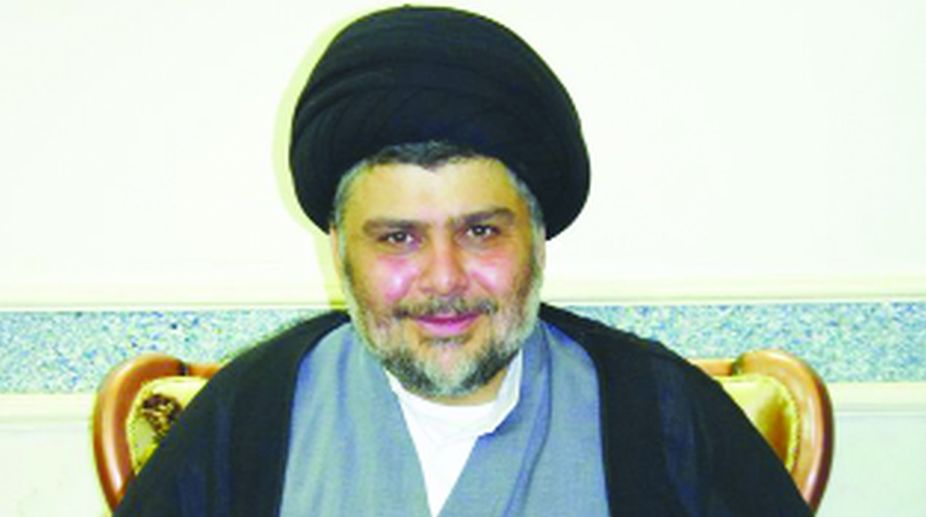Iraqi President names new PM-designate
Al-Zurfi is an Iraqi Shia politician, who was born in the city of Kufa in Najaf province in 1966.

Shia militia chief Moqtada Sadr.
An alliance headed by former Shia militia chief Moqtada Sadr (photo) has won the parliamentary elections in Iraq, the poll panel said.
Final results released by the Electoral Commission gave Sadr’s Saeroun bloc 54 seats, while current Prime Minister Haider al-Abadi was in third place with 42.
Advertisement
Sadr, a long-term adversary of the US, cannot become Prime Minister himself as he did not stand as a candidate, the BBC reported. However, he was expected to play a major role in forming the new government.
Advertisement
Sadr has reinvented himself as an anti-corruption champion after making his name as a militia chief fighting US forces after the 2003 invasion of Iraq. He is also a fierce critic of Iran.
These elections were the first since Iraq declared victory over the Islamic State (IS) group in December, the BBC reported. Some 5,000 American troops remain in Iraq supporting local forces, which were fighting the IS.
The Saeroun (Marching Towards Reform) list is an alliance between Sadr’s Istiqama (Integrity) party and six mostly secular groups, including the Iraqi communist party.
It pushed the pro-Iranian Fatah (Conquest) alliance into second place with 47 seats. Fatah combines the political wings of militias in the Shia-led paramilitary Hashd al-Shaabi (Popular Mobilisation) force and is led by former Transport Minister Hadi al-Amiri.
The defeat of Abadi’s Nasr (Victory) alliance came as many voters expressed dissatisfaction with corruption in public life. Sadr’s party and its allies campaigned on a platform of fighting corruption and investing in public services.
Despite Abadi’s poor showing, he might yet return as Prime Minister after negotiations which must now be completed within 90 days to form a new government, the BBC reported.
Advertisement